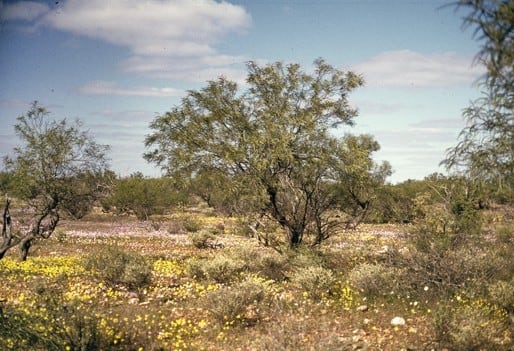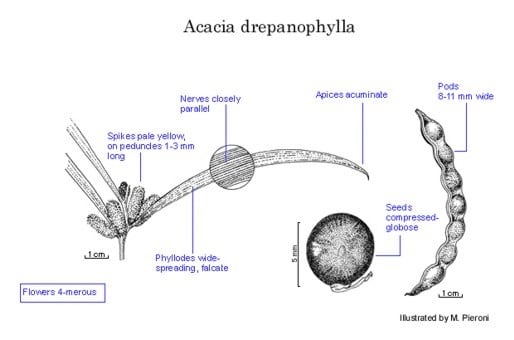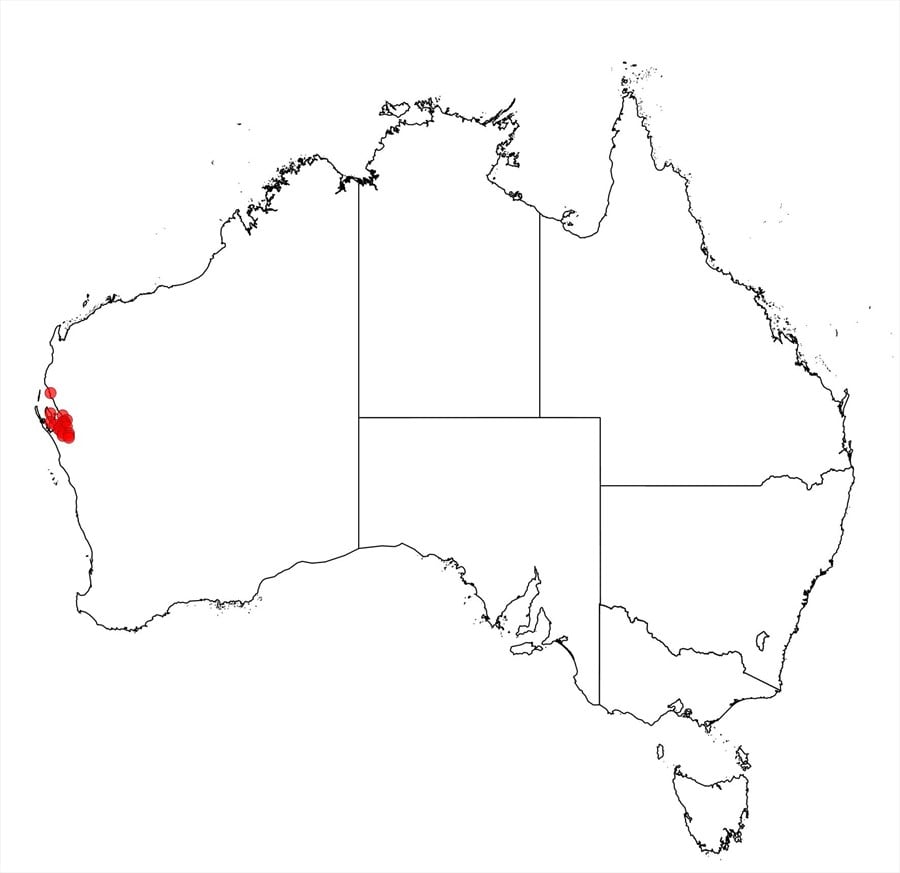Acacia drepanophylla Maslin
WATTLE
Acacias of Australia
Family
Fabaceae
Distribution
Restricted to the Shark Bay area from Yaringa Stn S to Wannoo, W.A.
Description
Tree 2.5–5 m high, obconical. Bark fibrous, fissured, grey. New shoots pale citron-sericeous. Branchlets glabrous. Phyllodes widely spreading, linear, falcate, (9–) 15–20 cm long, 3–6 mm wide, acuminate to delicate tip, not rigid, glabrous, finely striate with central nerve more evident than the rest. Inflorescences rudimentary 2-headed racemes with axes > 0.5 mm long; peduncles 1–3 mm long, puberulous but hairs often sparse; spikes c. 15 mm long, c. 5 mm diam., pale yellow. Flowers 4-merous; sepals free, linear-spathulate. Pods linear, flat but rounded over and slightly constricted between seeds, to 11.5 cm long, 8–11 mm wide, firmly chartaceous to thinly coriaceous, glabrous. Seeds oblique to longitudinal, compressed-globose, 5–6 mm diam., dull, grey-brown; funicle membranous, flat; aril small.
Habitat
Common throughout its range and sometimes dominant. Grows in shallow red clay or loam over limestone, in Acacia scrub and shrubland.
Specimens
W.A.: S Yaringa Stn, W.E.Blackall 4702 (PERTH); E side of Nanga Stn, R.J.Cranfield 2592 (PERTH); near Overlander Roadhouse on North West Coastal Hwy, 2 July 1982, P.Hennig (K, MEL, NSW, PERTH); 9 km N of Billabong Roadhouse, North West Coastal Hwy, B.R.Maslin 5582 (PERTH).
Notes
Related to A. oldfieldii (which grows nearby) but that species is distinguished by its generally shorter, straight to shallowly incurved phyllodes, golden spikes, partly united sepals and narrower pods. Also related to the more southerly distributed A. acuminata which is most readily distinguished by its fimbriolate phyllodes.
FOA Reference
Data derived from Flora of Australia Volumes 11A (2001), 11B (2001) and 12 (1998), products of ABRS, ©Commonwealth of Australia
Author
Minor edits by B.R.Maslin
R.S.Cowan
This identification key and fact sheets are available as a mobile application:
URL: https://apps.lucidcentral.org/wattle/
© Copyright 2018. All rights reserved.








